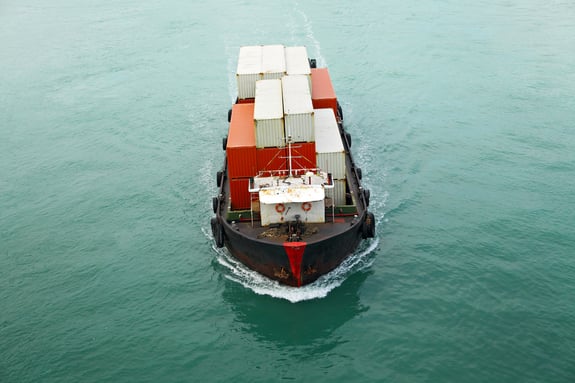
Why Is It Expensive To Ship Internationally?
One of the most common questions that people new to international shipping ask is, "why is it so expensive?" And, it's true. It's expensive. Even seasoned pros, though, are asking the same question as of late - given recent events.
So, why?
Let's talk about it. Watch the video to learn.
Issue 1: Supply and Demand
This is the big one. You remember your economics class, right? The one with the graph that looks like an x...Ok, even if you don't know that graph, the concept is what's driving prices. Simply put, the supply, represented by the number of container ships in the global merchant fleet, has a limited capacity. In fact, according to statistica, there are less than 6000 container ships in that global fleet.
To add to this shortage, container ships are now asked to wait more than one month at times to get unloaded, effectively decreasing the number of ships that can haul goods at any given time. Furthermore, it takes labor to load and unload those ships once they do become available; labor that is hard to find. It also takes drivers to get containers to and from docks; drivers that are hard to find.
It all means that the supply to ship internationally is constrained or less available.
But demand, on the other hand, has increased. During the Covid shutdowns, many factories had to stop production. People had to stay home. Now that that time is over, factories are racing to produce everything that they can now, and people are beginning to buy a lot more. It created a surge in demand to purchase these things made and shipped from other countries, especially China.

Surges like these are the enemy of logistics. The unevenness of demand creates a series of complicated problems. For example, when you get a huge demand for products shipped from China to the U.S., you must use many shipping containers. Those containers, unloaded in the U.S., must make their way back to China, but because of a massive surge, the U.S. has found itself in possession of more containers than it should, and China has less than it should. All because of this surge. There are more examples, but you get the idea. Surges = Bad.
In all, supply and demand are not even, which leads to the limited supply going to the people willing to pay the most; businesses with urgent needs are often willing to pay astronomical rates to get their products shipped. That willingness means prices go up for everyone.
Issue #2: Input prices
To ship anything internationally, you need a lot of input. Inputs are anything you need to perform the shipping. Things like fuel, wages for workers, and even the containers themselves cost money. In each of those cases, prices are up over historical averages. Fuel prices are soaring. Wages are rising to attract help due to limited worker availability. Even the containers themselves cost more to make but also - to supply.

Remember the surge example we discussed earlier? If you have a glut of containers in the U.S., you must ship them back to China. Shipping a surplus of extra containers back to China, empty containers, all costs money. That money is then charged back to the next person who needs to ship something using them.
Issue #3: Price Gouging
The Federal Maritime Commission, or FMC, is an independent U.S. agency responsible for regulating foreign and inter-coastal ocean commerce shipping via U.S. ports. The FMC regulates both Vessel Operating Common Carriers (VOCCs) and Non-vessel Operating Common Carriers (NVOCCs). This agency helps regulate much of what makes international shipping work. But, they don't regulate prices. 
Without governmental oversight, it's common for forwarders or logistics partners to charge as much as they can to customers willing to pay. It's not a pretty issue, but it does happen. It's especially common because of the current prevailing conditions. It's not ideal, but it's happening. The best way to avoid it is to use a logistics partner you trust to be honest with you. They can help spot gouging and help you proactively avoid those scenarios.
Conclusion:
The world of international shipping is expensive, but like ships tossing in the ocean, what tips to one side, usually tips back the other way at some point. While no one can tell what the future will hold, connect with a trusted logistics partner to help weather the storm and keep your freight moving.